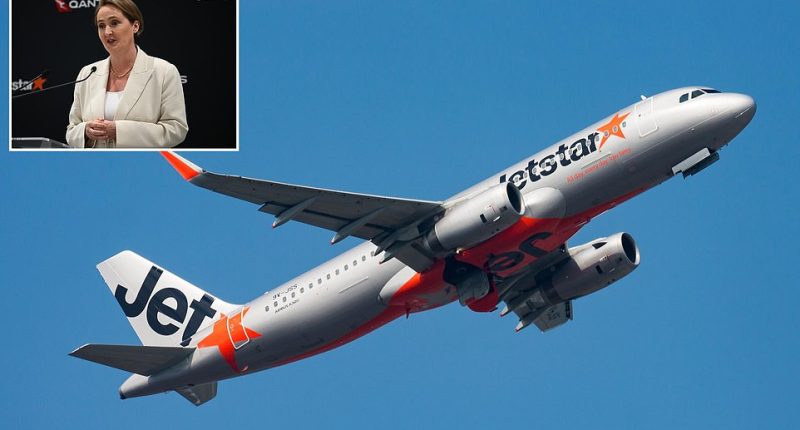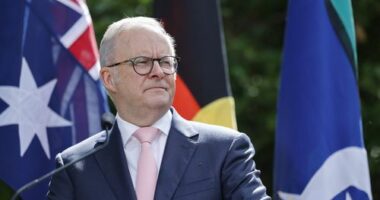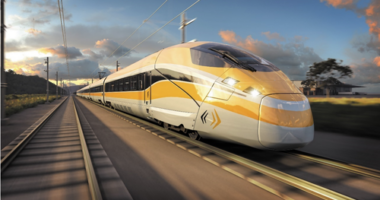Share this @internewscast.com
Qantas is set to discontinue its Jetstar Asia subsidiary, ending over two decades of service since the budget airline’s inception. The announcement was revealed to the ASX on Wednesday as Jetstar Asia faces the challenges of increasing costs and competition in the region, predicting a $35 million loss for this financial year.

Qantas plans to reallocate the 13 Jetstar Asia Airbus A320 planes to service routes within Australia and New Zealand. This move may result in the loss of approximately 500 jobs from the Singapore-based airline that operated 16 routes across Asia.

The domestic operations of Jetstar within Australia and New Zealand, as well as flights to and from destinations such as Bali and Japan, will remain unaffected. However, travelers with ticketed connections involving Jetstar Asia might experience disruptions.

Jetstar Asia will continue flights for the next seven weeks and cease operating on July 31. All affected employees would be provided with redundancy payments, the airline said.

Qantas said the move will free up $500 million to invest in fleet renewal. Qantas Group CEO Vanessa Hudson said Jetstar Asia’s supplier costs had increased by ‘up to 200 percent’.

‘We are currently undertaking the most ambitious fleet renewal program in our history, with almost 200 firm aircraft orders and hundreds of millions of dollars being invested into our existing fleet,’ Ms Hudson added.

‘We’re making disciplined decisions which recycle capital across our business and prioritize it to stronger performing segments as well as strategic growth initiatives like Project Sunrise.’ Qantas will receive its first Airbus A321XLR later this month and the first Project Sunrise A350-1000ULR in 2026.

Aussie airlines have faced a mixed bag of opportunities and challenges in recent years. Last year, Regional Express collapsed after it made a bid to compete against Qantas and Virgin Australia with popular city routes.

Budget carrier Bonza also folded after servicing lesser-travelled cities and towns for a mere 15 months. In general, however, the demand for both domestic and international air travel is increasing, with the major airlines responding with expanded fleets and additional routes.

Qantas Group and Virgin Australia dominate the domestic market, which has limited consumer choice and pushed up fares, according to the Australian Competition and Consumer Commission. Singapore remains a critical hub for Qantas Group as its third most-used international airport.











